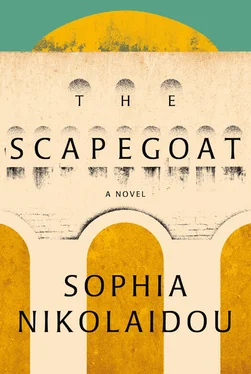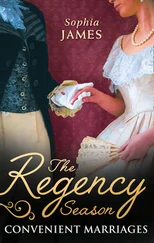The General of the Greek rebel fighters fairly quickly found shelter in the Soviet Union. Forty years later, in an interview about an unrelated issue, a young, ambitious reporter asked him about the Gris case.
The General had recently returned to his native land. He had agreed — without much thought, some judged — to run for office on the ballot of the ruling party. His old comrades were appalled, but the General believed he was doing the right thing in giving his support to the prime minister who would change the country.
In the context of a national reconciliation, he was photographed with his adversary from the Civil War. The old enemies shook hands, but the photographers weren’t satisfied, and so they embraced. Flashbulbs popped. It’s all an issue of symbolism , the prime minister had stressed when arranging this meeting. The old Greece, riddled by divisions of all sorts, has to be forgotten. What this country needs is change .
The General understood the need for old hatreds to be buried with the dead. He smiled when his old enemy pronounced into the microphones that the General had been his most worthy opponent . But he refused to make peace with the former head of the Communist Party, the one who had kicked him out of Greece. Bastard , he called him, opportunist . The reporters were pleased to get a front-page story out of it.
The ambitious reporter approached the General after his colleagues had left. He was hoping for something more than the official statements they’d all jotted down. He reminded the General of the Gris case and asked for an exclusive interview. The General was tired, he was no longer the young man who had moved mountains and deployed entire armies. But something in the reporter’s eye gave him pause. He told him to turn off the recorder. With a single sentence, he cleared Rimaris and the right. He muttered something about dark forces , but gave no further explanation. The brief interview was useless to the reporter, who made sure not to show his disappointment.
The General took his leave, certain that he would be seeing the young man again, in a higher position, very soon. And sure enough, within the year Tasos Georgiou was promoted to editor. By the time he became editor-in-chief, the General was only a name.
The Gris trial occupied the interest of journalists for far longer than it was front-page news. For many years, whenever a reporter wanted to try his hand at a difficult case, he would open the file on Gris. Every so often new evidence came to light. The journalists were primarily interested in intrigues and conspiracies. They went looking for abuses of political power, secret agreements, contradictory evidence. Lawyers sifted through the proceedings, pointing out gaps and contradictions.
Those who believed in the rule of law, particularly those who liked to think the police force does its job, were exasperated by these jeremiads. The case was closed. Anyone still trying to unearth evidence wasn’t to be trusted.
Ach , said the people in the neighborhood, who fed on others’ misery. It destroyed his mother, she couldn’t bear it . The old goats who’d shunned the family all those years only remembered Evgnosia after the fact. The poor thing, shut up in the nuthouse, an unmarried girl. They sat by the fire with their needlework, pouring out expressions of compassion and warmth. Her misfortune kept their conversations going for years.
As for Violeta, she became a lawyer, just think of it. Running back and forth to the courthouse all day long, how could she take care of a husband, she must have ended up an old maid .
The family house was boarded up after Evgnosia was taken away. The paint on the shutters flaked from the rain, the garden ran riot, weeds sprang up everywhere. Eventually it was rented by an accomplished seamstress. She opened the curtains to let in the sunlight, held rows of pins in her mouth, kneeled on the floor to take in hems. There was a table beside her sewing machine covered with a tablecloth of starched finery, embroidered with flowers and edged with lace. Whenever a customer commented on it, she would say that she’d found it in the house when she came, along with a bunch of old things, torn clothes and unused scraps of fabric. She washed it with green soap, scrubbed it for hours, and in the end the handiwork shone through. It was tarnished by a faint shadow, an old stain that had seeped into the fabric. There, under the box with her spools of thread. She couldn’t bear to let such a fine piece of work go unused. So she set the box over it, to hide the flaw.
An old woman who’d lived in the neighborhood her whole life told the seamstress that the tablecloth had been part of Kyra-Maria’s dowry. The rest of the women nodded their heads, and said Kyra-Maria’s laundry had always been sparkling white, all the neighbors used to remark on it, and the linens so orderly on the line, clean white nightgowns and underwear tucked away on the back lines where it wouldn’t be seen. She had unmarried girls at home and took care . Perhaps that’s why the gypsies stole her laundry, it was too clean, and the embroidery too fine , added one woman who still remembered the event.
Ever since disaster had struck the family, everyone had only good things to say about them. An old woman with white hair remembered the day of the funeral. Manolis had been in prison only a year and they brought him to give his mother a last kiss. The house was full of neighbors, still there from the vigil the night before. The coffin was on the table in the living room, and the older women crossed themselves and raised the icon to their eyes. They’d been reading prayers all night — someone had brought a Bible and they flipped to random pages, it didn’t matter, they were all holy words, anything would suit the occasion. The two girls sat on either side. Their eyes were dry; they had run out of tears.
Outside it was pouring rain, a true storm. Water came in through the cracks and the walls ran with damp, droplets licking the whitewash. They had put out rags at the front door, but no matter how much people wiped their feet the mud still stuck, covering the floor.
Manolis came in.
His hands were tied with rope. That detail struck them, and they talked about it later in their homes. There was a dull look in his eye, like the bottom of the sea in the afternoon. His eyes were snuffed candles and his skin was pale, since now he lived locked up in basement cells. The widows bit their lips. They knew he’d adored his mother, and worried he might die on the spot and be left on their hands.
Manolis leaned over the coffin as if it were the hull of a boat. People later said the police had gotten him drunk before he came, Tzitzilis had made sure he wouldn’t know what was happening and wouldn’t feel a thing. Manolis never cried a tear.
He paid no attention to what his sisters said, just stared straight into the coffin at his mother, who smelled of soap. Evgnosia had insisted on bathing her corpse with a clean towel. Violeta was wracked with grief, incapable of helping. In the end Evgnosia got out the tin basin, the one her mother used to fill with sand where she’d plant candles for the dead on the Day of Lights. She found the grave clothes Kyra-Maria had chosen ahead of time, This is what I want to be buried in , she’d said, and wrapped them up in the shroud. It’s what her mother had done before her, Evgnosia’s grandmother from Trabzon whom neither of the girls had ever met. The women of their family never left loose threads to their children.
Evgnosia turned the house upside-down but couldn’t find Kyra-Maria’s wedding ring anywhere. The girls never realized it had been sold. Lawyers cost money, even the most compassionate have expenses of their own. And then there were bribes to be paid to clerks and various intermediaries for some document or a few minutes of visiting time. That’s how mothers were in those days, particularly refugee mothers, Pontic women who had come to the country with nothing but their souls in their mouths. They held their families in their fists. Whatever needed to be done, they did it themselves.
Читать дальше












